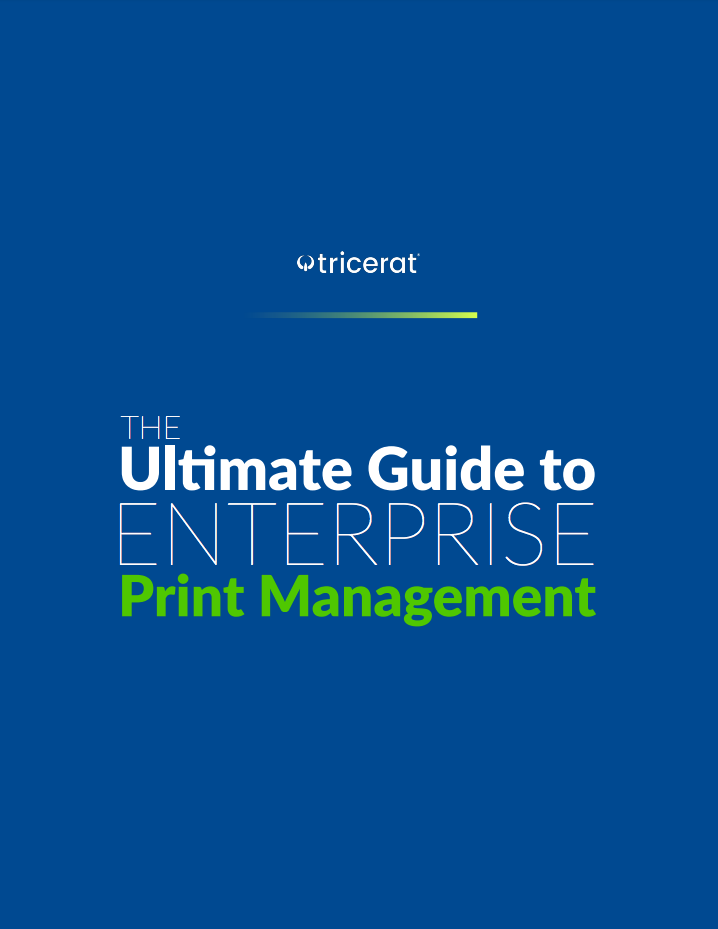We attended the Xenappblog Virtual Expo last Friday and it certainly did not disappoint! Every session we watched provided a wide variety of information, ranging from the best ways to navigate common IT problems, to predictions about where this industry is headed in the near future, and how to adapt to these changes. We also had the opportunity to give a presentation and had so much fun discussing the reasons why organizations should treat printing and scanning as a DevOps strategy!
Why it makes sense to treat printing and scanning like a DevOps strategy
In Tricerat's session we discussed goals that are important to have in both DevOps and EUC strategies and leveraged results from our new State of System Administration report to show how the needs and goals of sys admins play into those strategies. Our findings showed that 55% of employees would prefer to work remotely at least three days per week. This means it is crucial, now more than ever, to ensure consistency between digital workspaces for remote work and in-person work.
Some overlapping goals to strive for in both DevOps and EUC strategies include responding quickly, increasing efficiency, delivering with agility, and reducing overhead. Having faster customer and end user response times, improving and continually optimizing IT, delivering superior end user experiences quickly, and continually studying the best practices to reduce unnecessary overhead are crucial elements of a successful IT strategy in the way the space is changing.
Don't just take it from us, either. Over 130 system administrators from seventeen countries in our survey agree with us. Check out the report now to hear more about their industry insights for free!
Out with the old, in with the new – adapting ‘traditional’ EUC delivery mechanisms for a cloud world
In this session, James Rankin and Dave Holborn also provided thoughtful insight on the new requirements and changes that need to be made for traditional EUC delivery mechanisms to successfully adapt to the new "cloud world." They especially emphasized the importance of monitoring. Many enterprises still don't monitor properly and have a completely reactive approach. With remote work becoming a popular option for employees, cloud or hybrid cloud environments make monitoring even more essential. This is why they said, "understanding the flow of the 'user journey' is paramount. Anything that can help from this perspective feeds into the discovery piece." It is important to understand not only what apps are being used, but how users are operating them.
Other aspects of modern success that they mentioned included implementing security by default, streamlining user onboarding, chaos engineering, automating test processes, and using new provisioning methods. In their opinion, infrastructure-as-code and Evergreen IT is "the way to go" because it has apps and infrastructure that will stay relevant in the future and adapt well to changes. "PVS and MCS are dead, forget them," they said candidly.
In the next session, Manuel Winkel discussed the problems that arise for admins when Microsoft Office 365, Teams, Exchange Online, and OneDrive have to be implemented in Citrix environments. He then explained how to solve these problems with internal Citrix resources, and when FSLogix is needed to implement high performance solutions for the future. Manuel taught attendees that "the concept of FSLogix is based on outsourcing profile data to a VHD(X) file. The FSLogix container is mounted as a virtual drive when the user logs in and is natively available to applications. The software redirects all access to the user data and settings to the external container."
He also broke down the differences between the Profile Container and the Office Container, giving demos of each type. In short, the Profile Container contains the entire user profile, has incredibly fast login times, eliminates profile corruption, and more. The Office Container contains Office data (OneNote files, Teams installation data, etc.), works in conjunction with other profile solutions, is capable of multiple sessions, and more. Learn more about FSLogix in Citrix environments by reading Manuel's in-depth article.
